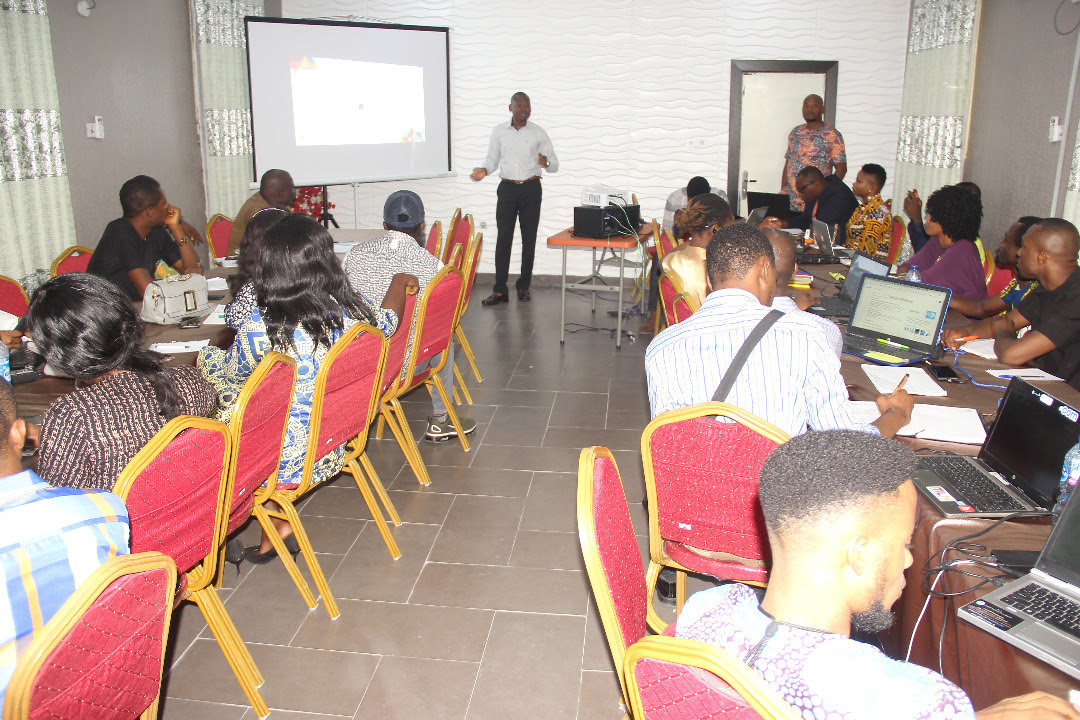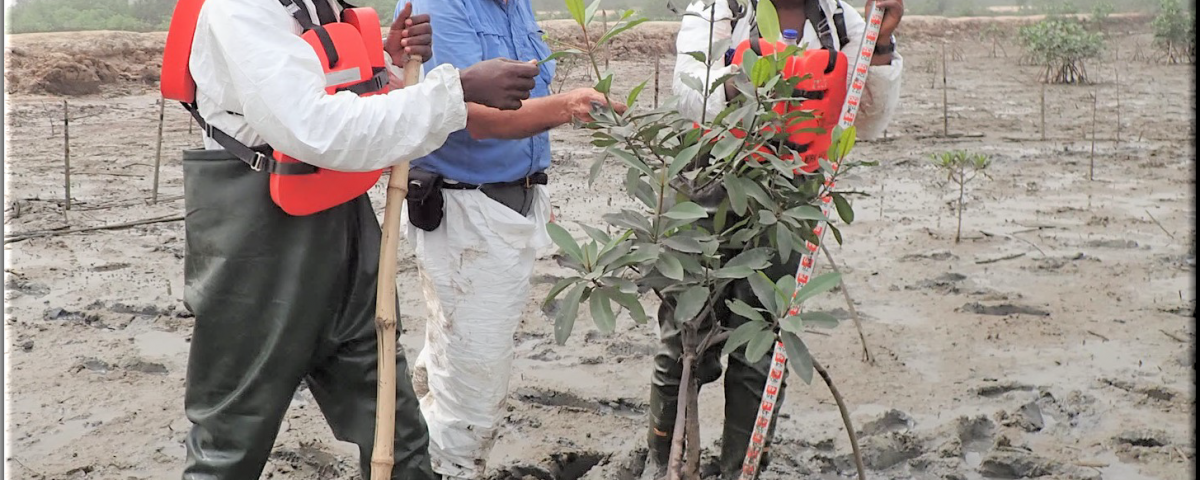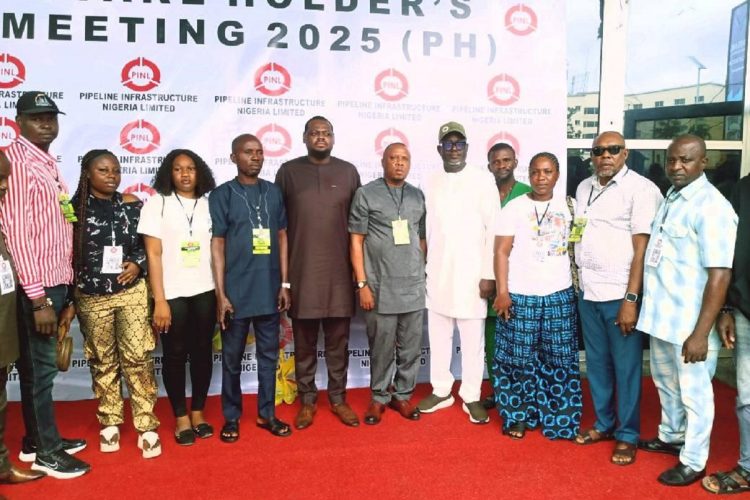
Download: Anti-Sexual Harassment in Tertiary Institutions Bill, 2019
February 17, 2020
Paradigm Initiative Hosts Digital Rights Workshop in Uyo
February 20, 2020
Thursday, 13 February 2020 – The Bodo Mediation Initiative (BMI) Project carried out an evaluation of mangrove seedlings planted at two sites two years ago, to assess the viability of replanting the nearly 1000 hectares of mangroves that were killed from oil spillage in the Bodo area. Seven sites showing varying levels of oil contamination were replanted as a test in 2017 and then repetitively monitored over two years.
The purpose of the monitoring program is to assess the survival and growth rates of mangrove planted within areas showing different levels of oil contamination. The mangrove plant shown in the photograph was planted in an area of low oiling and showed growth of seventy-three percent, from 60 cm to 104 cm, over the past two years. All monitored plants at this site survived. Several new seedlings were also present showing that the site is beginning to regenerate naturally.
Unfortunately, a nearby planting site was not nearly as positive in outcome. Base sediments of the seedling were heavily contaminated, and plants were subject to frequent re-oiling. A total of nineteen of twenty-three plants died. In contrast to the one hundred percent survival at the low oiling site in the photograph. Only seventeen percent survived in this location. However, even under these very harsh conditions, plants are able to grow. The remaining monitored seedling grew from 68 to 98 cm, or forty-five percent.
Dr. Erich Gundlach, who led the assessment team, noted that a concerted effort is required to stop the continuous re-oiling from illegal refining within the Bodo creeks to enable new mangroves to survive. Otherwise, the success of both mangrove planting and the cleanup actions with nearly 1000 workers currently onsite, is in jeopardy.
Remediation companies in line with their international partners, are currently intensifying efforts to clean-up the impacted areas. This is a positive step in advancing the restoration of the devastated Bodo mangrove ecosystem and will contribute to curbing climate change and aiding sustainable development.









